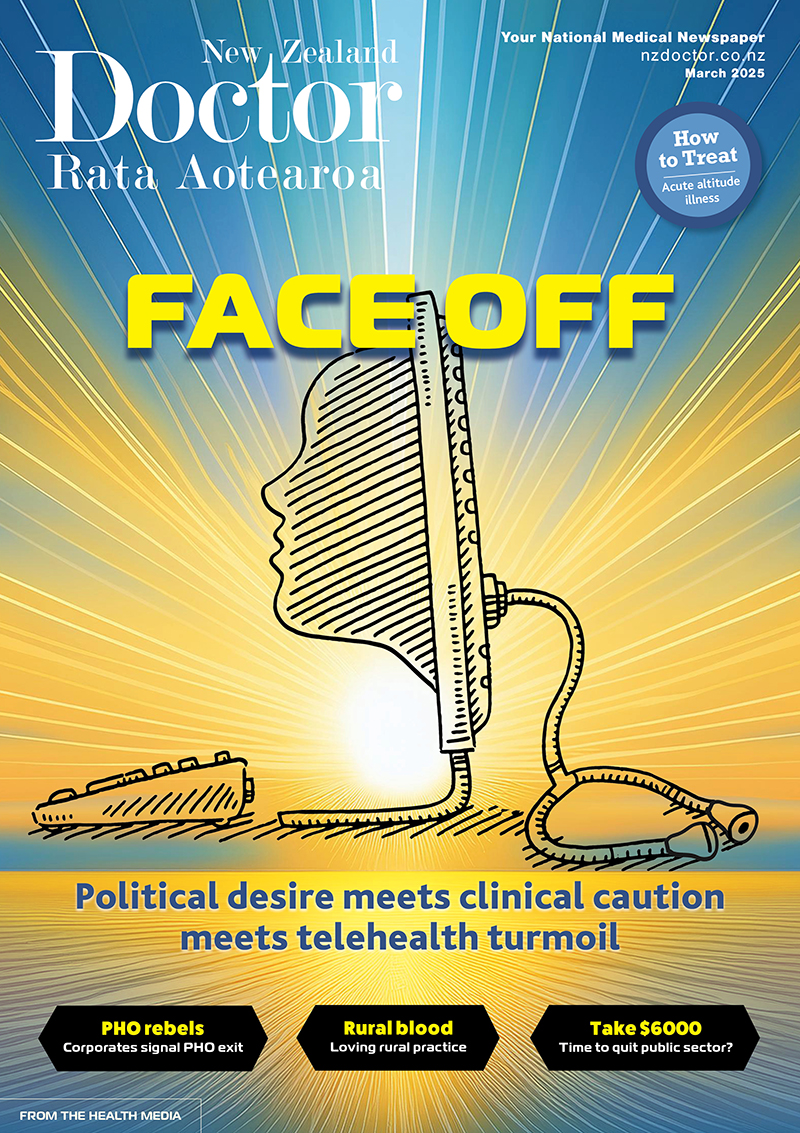Many people travel to high-altitude destinations, meaning clinicians are often faced with questions about how to prevent and treat altitude illness. Update your knowledge with this New Zealand Society of Travel Medicine summary of updated evidence-based guidelines with comments by senior lecturer Jenny Visser – it outlines the best prophylactic regimens, diagnostic approaches and treatment protocols for acute altitude illness
Peer support for spinal cord impaired to be extended across New Zealand
Peer support for spinal cord impaired to be extended across New Zealand

Peer support services for Kiwis with spinal cord injuries will soon be extended into homes right across the country, in a move that will “profoundly benefit” people returning to their communities from specialist units.
The $1.3 million programme will see a comprehensive peer and whānau support service established across New Zealand, coordinating a network of about 30 fully-trained community peer support staff and dozens more community volunteers with lived experiences of spinal impairment.
The two-year “proof of concept” proposal has been developed by charitable organisations Spinal Support NZ and the New Zealand Spinal Trust.
These trusts currently deliver the country’s only specialist peer support services for people with spinal cord injuries: at the Auckland Spinal Rehabilitation Unit, and Christchurch’s Burwood Spinal Unit.
“This is without a doubt the most significant support for the collective spinal cord-impaired community in New Zealand since ACC's inception in 1974,” New Zealand Spinal Trust chief executive Hans Wouters says.
“This is a very important commitment that will profoundly benefit the lives of serious injury customers and their whānau.”
The programme will fund existing peer support services at the Auckland and Christchurch rehab units over the next two years, as well as the development of a community-wide peer network for clients and their whānau – from the Far North to the Deep South.
The network will provide support for people returning home from spinal units, and people with spinal cord impairments already living in the community.
“We have a very exciting two years ahead of us as we develop peer support services in New Zealand in an unprecedented way,” Wouters says.
Returning to homes and communities is recognised as a critical stage for people who have sustained spinal cord impairments, and peer services have been shown to provide more responsive and targeted support; teach skills and strategies that aid a return to independence; and be a positive influence on rehabilitation.
In New Zealand, peer support actively promotes belonging, autonomy and confidence, while also supporting the development of optimism and adaptive coping.
However, current peer services are focused on inpatient support, with limited support available for people, or their families, as they return home from hospital.
Under the expansion, which will be rolled out over two years from October 1, peer support workers will be established across every region of New Zealand.
Wouters says the network will include support, advice and encouragement for whānau of people with spinal cord impairments, because all too often, their needs get overlooked.
Once the full programme is in place, the trusts will work with ACC to secure the ongoing delivery of the service.
About 220 people sustain a new spinal cord impairment each year, with roughly two-thirds of these the result of accident or injury, and one-third the result of other factors such as disease or illness.
It’s estimated about 5000 New Zealanders with spinal cord impairments are living in communities across the country, Wouters says.
“We anticipate this new peer support service will unearth more of these hidden wheelies as we make peer support available in the community.”
NOTES:
- Peer support services for New Zealanders with spinal cord impairments (SCIs) began in 1996 with the Buddy system at the Auckland Spinal Rehabilitation Unit. It was delivered by volunteers of TASC (Now Spinal Support NZ). The NZ Spinal Trust established peer support at the Burwood Spinal Unit in 2008.
- In 2012, then-NZ Spinal Trust CEO Ben Lucas assisted ACC and the Ministry of Health to create the New Zealand Spinal Cord Impairment Action Plan, which was published in June 2014. The front cover includes an intention to ensure “the best possible health and wellbeing outcomes for people with spinal cord impairment are achieved, which enhances their quality of life and ability to participate in society".
- One of the objectives of the Action Plan was to develop a nationally consistent framework for providing sustainable peer support services.
- Last year, a business case for sustainable funding was developed by the two trusts with the help of research from the Burwood Academy Trust, and a two-year proof of concept agreement was reached with ACC in 2021.



